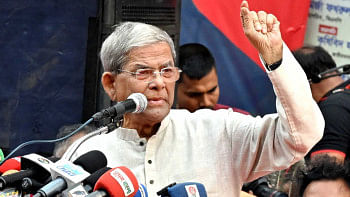Deserving candidates should get access
From an article titled "A Note on Re-fixing Interest Rate on Shanchoypatra" written by Mr Biru Paksha Paul, published in The Daily Star on August 5, 2018, I scooped up a few precious pearls of ominous prophecies, the gist of which are: i) it would be inappropriate and unwise for the government not to lower the interest rate of all kinds of saving instruments bringing it at par with the banks' deposit rate; ii) under no circumstances should the rate of interest of saving instruments be above 9 percent.
Now let me take a brief look at the genesis of savings schemes. National Saving and Investment scheme was founded by the Government of UK in 1861 as Post Office Savings Bank, the world's first Postal Saving System. The aim of the bank was to allow ordinary workers a facility "to provide for themselves against adversity and ill-health", and to provide the government with access to debt funding. As an example, savings certificates were issued during World War I and World War II to help finance the war effort.
Department of national savings, Bangladesh, traces its origin to the National Savings Institute of India, which was founded in 1944, at the fag-end of the British rule in India. After the partition of India, the National Savings Institute was managed by the Ministry of Finance (Pakistan). And after the Independence of Bangladesh in 1971, the Government of Bangladesh created the Directorate of National Savings, which absorbed the functions of the National Savings Institute. In 2014, the Directorate of National Savings was upgraded to a full-fledged department with defined aims and objectives. Primarily, the Department of National Savings is aimed at ensuring welfare of the disadvantaged, marginalised, handicapped, retired government employees, senior citizens (above 70 years old), women, freedom fighters and the middle and lower income group of people in the country. While the objectives of the department are: i) to encourage people to inculcate the habit of saving; ii) to garner small savings scattered across the country and bring those to the mainstream saving scheme of the government; iii) to meet the national budget deficits by the money garnered through the national saving scheme; iv) to bring under the economic and social safety net through national saving scheme such special groups of people as women, retired government employees, senior citizens, expatriate Bangladeshis and physically handicapped people; and v) to help control inflation and reduce dependence on foreign aid.
But the reality is that massive amounts of savings certificates are being bought by institutional investors, corporate houses, big industrial entrepreneurs and business groups, individuals with a lot of black money and, even public and private banks. The above-mentioned individuals and institutions certainly don't fall under the categories of people mentioned in the "Aims and objectives" of the Department of National Savings, Government of Bangladesh, as enunciated in in its website.
To equate the rate of interest of saving instruments with Banks' deposit/lending rate is both inappropriate as well as extraneous for the former is a welfare oriented non-profit initiative, which act as a social safety net to bring succour to the disadvantaged sections of the society, while the latter is a profit-making organisation, designed to play significant role in the socio-economic development of the country.
The government's worry is that the sale of savings certificates far supersedes the target it (government) set forth because the interest rate of savings certificates is higher than that of banks' deposit, saving or FDR. This anomalous situation crops up because voluminous amounts of savings instruments are purchased by people not entitled to purchase them as per the Directorate of National Savings' clear mandate. The DNS unambiguously specifies the categories of people who are eligible to purchase savings certificates.
If the government strictly adheres to its own edicts and confines the sale of savings certificates to only those who are eligible, two distinct benefits will accrue: Firstly, retired government employees, marginalised people, women et al shall not have to return from the banks and post offices frustrated, dejected and demoralised being told that savings instruments are not available; Secondly, the government's set target won't be crossed and it (government) won't have to pay extra money as interest from its coffers.
The solution to this deviant problem, in my humble opinion, lies not in cutting the head to cure the headache, but in thoughtful and in-depth deliberation focusing on set principles and objectives of the national saving scheme—its history, aims and objectives since 1944.
Manzoor Ahmed Mollah is a retired Brigadier General.





Comments